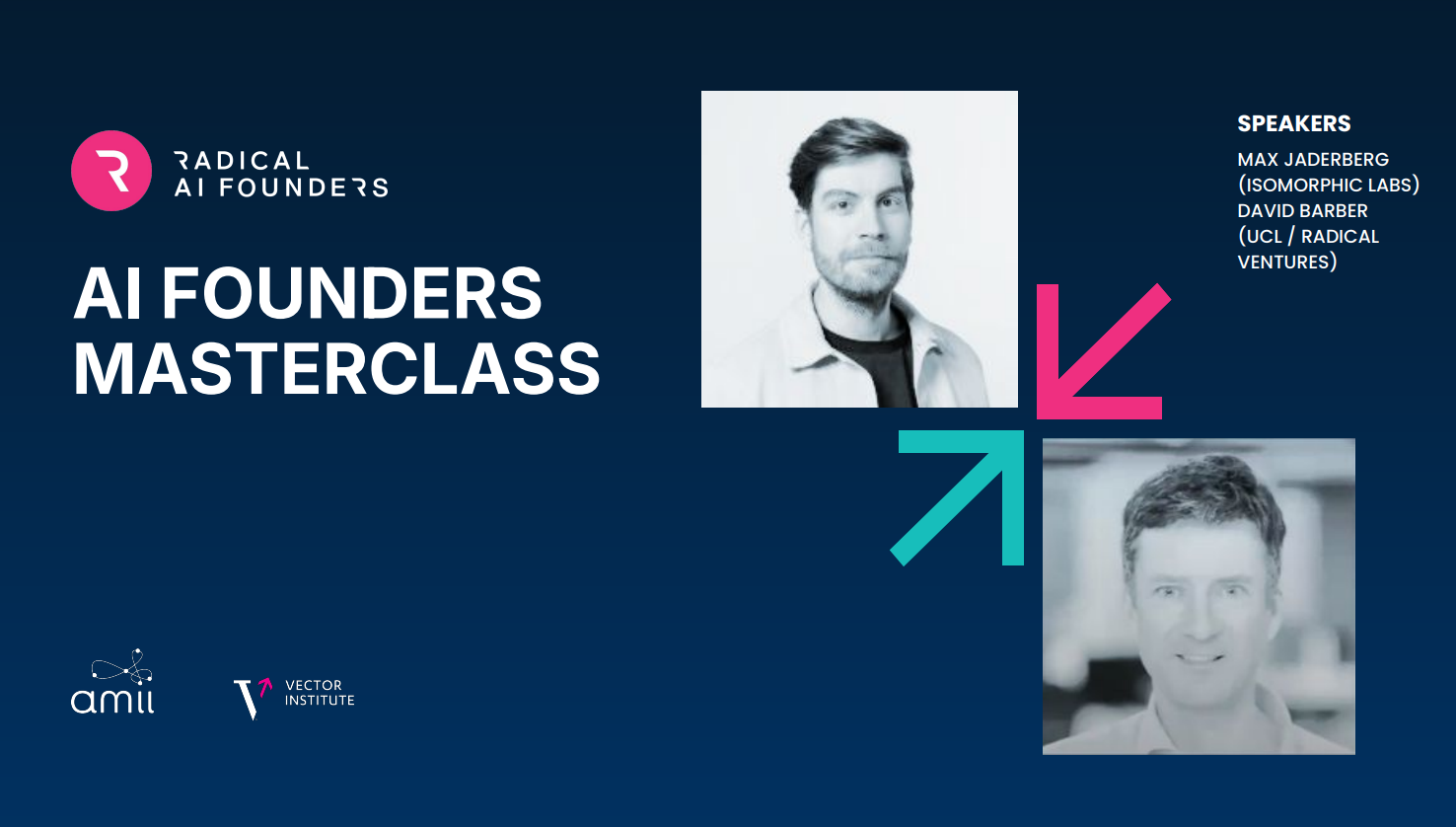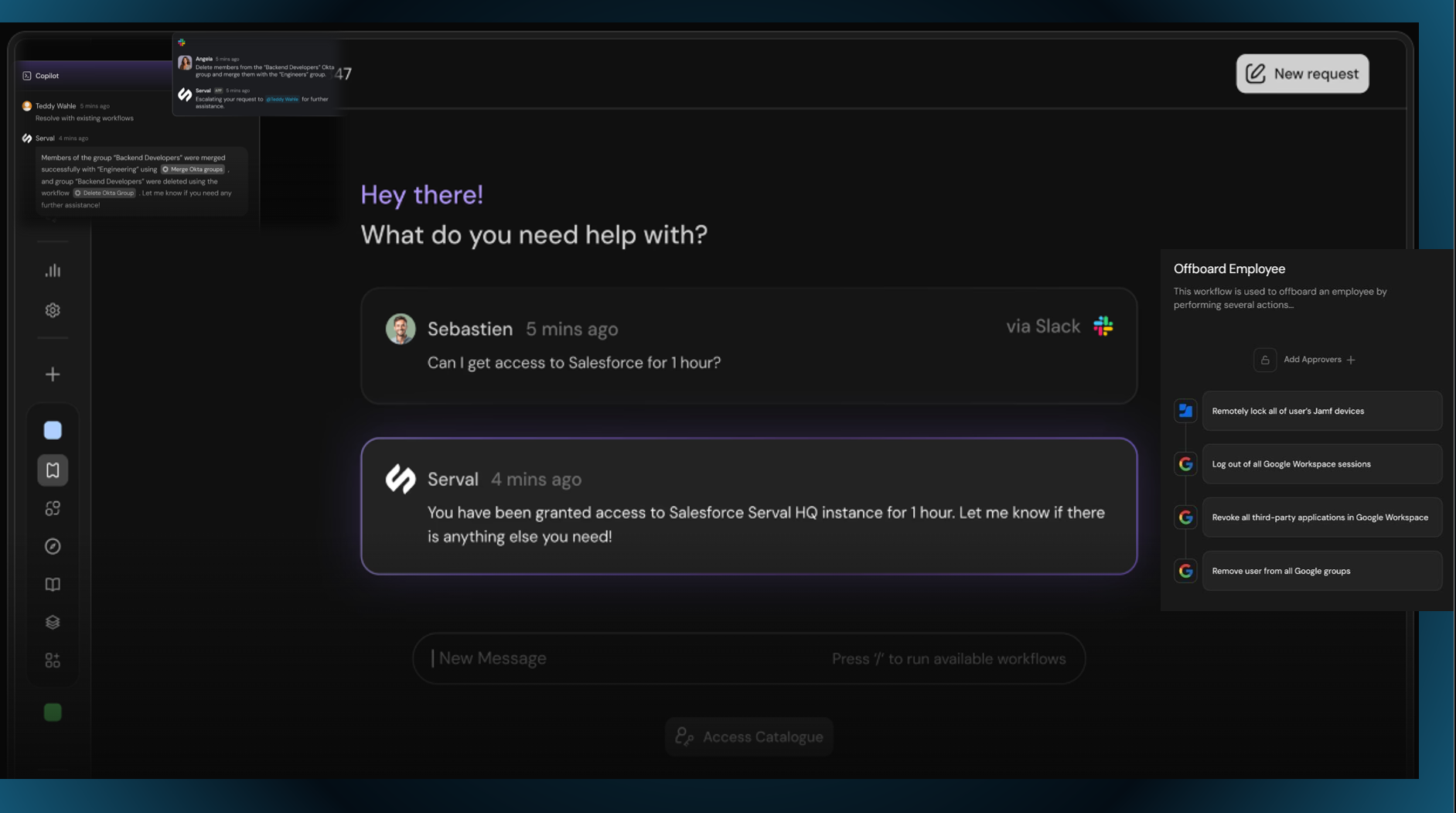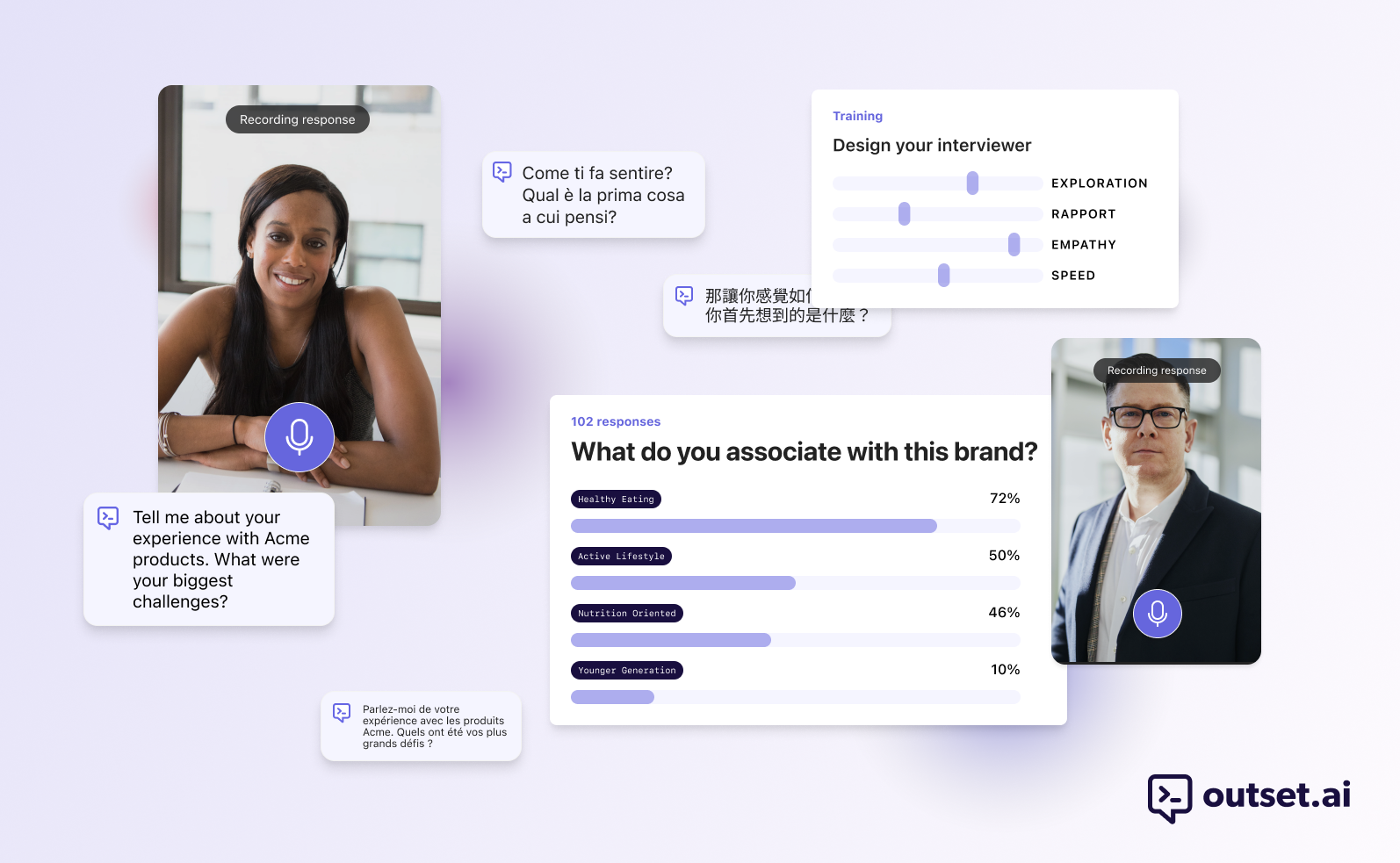The 2024 Radical AI Founders Masterclass concluded with a conversation between Max Jaderberg, Chief AI Officer at Isomorphic Labs, and Radical Scientific Advisor, David Barber, Director of the UCL Centre for Artificial Intelligence.
In the following excerpt, Max and David share their perspective on balancing research interests with the demands of building a company.
David Barber
Academics possess some very valuable characteristics for business, particularly resilience. If you are easily discouraged, you will not succeed in academia. It is a critical environment with little positive reinforcement. This stoicism is incredibly valuable in the startup world, where you will face many setbacks. The key is maintaining your passion for the field and your end goal, even when the path changes.
Many academics, myself included, start rather naively. We imagine we will spend our time solving the world’s great problems. The reality is that you need to start building things immediately, often with imperfect information and in an imperfect world. Commitment is crucial, both in academia and in startups. You may need to pivot from your initial idea.
Max Jaderberg
I approached this from a different angle. When I started my PhD, I was clear from day one that I intended to spin out a startup. Both academic and industry environments have their strengths, particularly for companies built on novel technology. Academia provides the space to explore uncharted territory in a protected way. While you can do this in industry, there’s always that underlying pressure to translate research into product impact.
Individuals should consider their broader mission: what change do they want to affect in the world? Sometimes, academia is the better platform for that goal, and we have seen in deep learning that this can shift back and forth over time.
David
What inspires me is how the separation between academia and industry has diminished. When I was younger, there was this perception that business success required a certain personality type: confidence, sharp suits, and business speak. But look at today’s tech landscape. I find it remarkable that today’s captains of the technology industry are dominated by people with deep technical skills.
There has never been a better time to enter business with deep technical skills. This is a testament to scientists’ ability to succeed in business.
Max
Absolutely. Having those technical skills gives you the ability to pivot when needed. If something does not work in one direction, you have the skills to build in another. Strong technical foundations position you well for these transitions.
Watch the full conversation between David Barber and Max Jaderberg here.
AI News This Week
-
Get ready for ‘Long Thinking,’ AI’s next leap forward (The Wall Street Journal)
A new generation of AI foundation models focused on ‘long thinking’ are emerging. These models tackle sophisticated tasks by spending additional time processing information, ranging from seconds to over 100 days. By mimicking the more deliberate cognitive processes that characterize complex human thinking, this approach will reduce errors and enable more powerful AI applications, particularly for complex science, coding, and math tasks.
-
How AI can revive a love of learning (The New York Times)
MIT professor Anant Agarwal argues that AI will enhance teachers’ capabilities rather than replace them. Agarwal describes how AI tools can handle administrative tasks like grading and lesson planning, freeing teachers to focus on student engagement and personalized instruction. AI is already being deployed to create customized learning paths, provide 24/7 academic support, and flag gaps in student understanding. While AI cannot replicate human empathy and creativity in teaching, it can help address the projected global shortage of 40 million teachers by 2030 by making existing educators more effective and helping revive personalized learning at scale.
-
India-US space tech company Pixxel raises $24M, gives boost to hyperspectral sat constellation project (MSN)
Radical portfolio company Pixxel secured an additional $24 million in Series B funding from M&G Catalyst and Glade Brook Capital Partners, alongside existing backers, including Radical Ventures. The funding will accelerate the deployment of Pixxel’s Firefly constellation of 6 hyperspectral satellites in early 2025, providing daily global coverage with 5-meter resolution across 250+ spectral bands for agriculture, climate monitoring, and resource management. The investment will also support the expansion of Pixxel’s Aurora AI platform for Earth observation data analysis and enhance their satellite manufacturing capabilities.
-
The AI revolution is running out of data. What can researchers do? (Nature)
Researchers warn that AI is rapidly exhausting available internet data for training large language models. A study from Epoch AI projected that models will need data sets matching the size of all public online text by 2028. While the internet contains an estimated 3,100 trillion tokens, its growth rate of less than 10% annually lags behind AI training needs, which more than doubles yearly. Companies are exploring solutions, including accessing proprietary data and synthetic data generation, while others, like Radical portfolio company DatologyAI, are pioneering methods to optimize training efficiency using data curation.
-
Research: Understanding and addressing cultural and linguistic biases in multilingual evaluation (Cohere for AI, EPFL, Hugging Face, Mila)
An international team of researchers from Radical portfolio company Cohere and academic institutions including MILA has developed Global MMLU, a culturally-aware translation of the MMLU AI benchmark in 42 languages. The study reveals Western bias in the original benchmark, with 28% of questions requiring Western knowledge and 84.9% of geography questions focusing on North America/Europe. Using professional translators, the improved dataset tags questions as culturally sensitive or agnostic for better assessment of AI models’ multilingual capabilities.
Radical Reads is edited by Ebin Tomy (Analyst, Radical Ventures)





